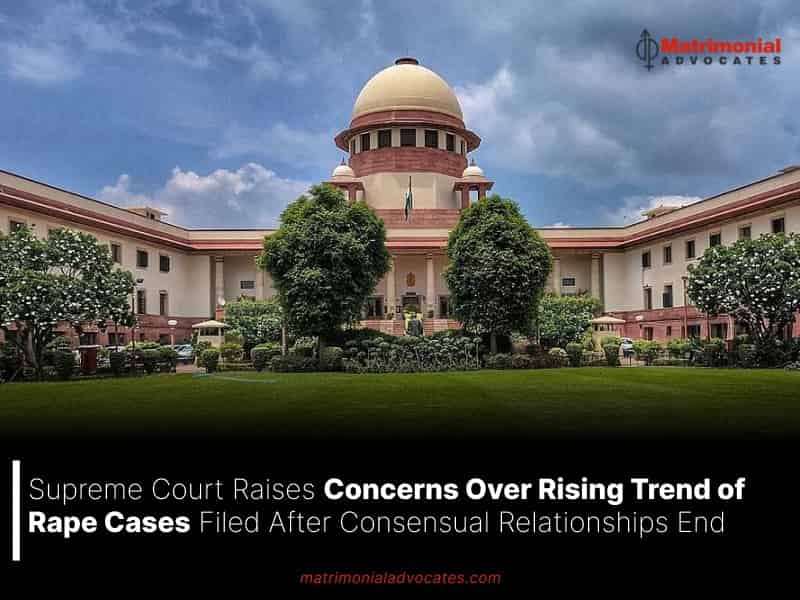
A Bench of Justice BV Nagarathna and Justice N Kotiswar Singh flagged the “worrying trend” of attributing criminality to the male partner after a consensual sexual relationship turns sour later.
On Tuesday, the Supreme Court ruled that a prolonged physical relationship between couples, where the female partner did not object or demand marriage, indicates consensuality rather than a relationship built on a false promise of marriage [Mahesh Damu Khare v. State of Maharashtra and Another]. A bench consisting of Justice BV Nagarathna and Justice N Kotiswar Singh also expressed concern over the “alarming trend” of imposing criminal liability on the male partner when a consensual sexual relationship subsequently deteriorates.
“It is evident from the large number of cases decided by this Court dealing with similar matters as discussed above that there is a worrying trend that consensual relationships going on for prolonged period, upon turning sour, have been sought to be criminalised by invoking criminal jurisprudence,” the Court noted.
The Court stressed the importance of distinguishing between consensual relationships and those based on false promises of marriage. It noted that a female partner may choose to engage in a physical relationship with a man for reasons beyond a marriage promise, such as personal affection or mutual compatibility, without the expectation of formal marriage. The longer such a relationship endures, the clearer the indication that it is consensual and not founded on any marriage-related promise.
“In a situation where physical relationship is maintained for a prolonged period knowingly by the woman, it cannot be said with certainty that the said physical relationship was purely because of the alleged promise made by the appellant to marry her. In our opinion, the longer the duration of the physical relationship between the partners without protest and insistence by the female partner for marriage would be indicative of a consensual relationship rather than a relationship based on false promise of marriage by the male partner and thus, based on misconception of fact,” the Court observed.
The Court further clarified that the extended duration of a physical relationship, without objection or protest from the female partner, eliminates any criminal liability, rendering the situation neutral. The case dates back to 2012, when the accused, a social worker active since 1985, helped the complainant resolve the kidnapping of her elder daughter. Following this, the complainant often visited the accused’s office to assist with his work, while the accused also provided her with financial support. According to the accused, he began distancing himself when the complainant’s requests for financial assistance became more frequent.
In response, the complainant reportedly began threatening the accused and his family members. Despite the accused and his family filing complaints against her, she later filed a case accusing him of rape, cheating, and criminal intimidation under Sections 376, 420, and 506 of the Indian Penal Code (IPC). The complainant stated that she first met the accused in 2008 while seeking employment, during which time the accused also required help caring for his sick wife. She alleged that the accused repeatedly engaged in non-consensual sexual intercourse with her, falsely claiming he would marry her.
The complainant alleged that the accused, who was already married to two women, promised to marry her, citing the poor health of both his wives. According to her, this arrangement continued until 2017, after which the accused began distancing himself and ultimately ended the relationship, telling her to do as she wished and disregarding any promise of marriage. The sessions court granted the accused anticipatory bail. However, the complainant later filed another FIR accusing him of molesting her daughter, in which he was also granted protection. The accused then approached the Bombay High Court, seeking to have both cases against him quashed.
The High Court dismissed his plea, noting that there was no prima facie evidence to indicate that his relationship with the complainant was consensual. As a result, the accused appealed the decision to the Supreme Court. The Supreme Court remarked that the fact that the two remained unmarried from 2008 to 2017, with no objection or protest from the complainant, suggested that the accused had no intention of marrying her.
“Making an allegation of non-fulfilment of promise to marry without undue delay by the promissee would, on the other hand, be an indicator of a false promise being made from the initial stage. In the present case, what is not in dispute is that the physical relationship between the appellant and the complainant continued for a long period of about a decade and as such it is difficult to infer that the appellant had made a false promise since the initial stage and continued to make false promises to marry her on the basis of which she also continued to have physical relationship with him,” the Court observed.
The Court expressed the view that the relationship between the two during this period appeared to be an extra-marital affair, with the complainant not insisting on marriage.
“It appears that discontinuance of financial support to the complainant, rather than the alleged resiling from the promise to marry by the appellant appears to be the triggering point for making the allegation by the complainant after a long consensual relationship for about nine years,” the Court observed while allowing quashing of case against the accused.





